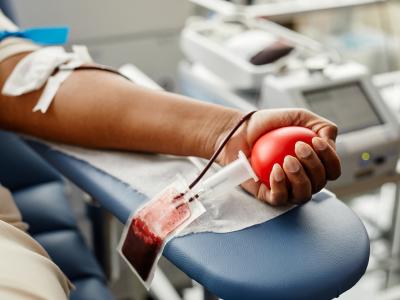Survey flags public health worker exodus due in part to COVID-19 impact
Over 40% of the US public health workforce plans to leave their jobs within the next 5 years, and 51% said more staff were needed to respond to COVID-19, according to findings from a 2021 survey published today in Morbidity and Mortality Weekly Report (MMWR).
Researchers from the de Beaumont Foundation and the University of Minnesota collected responses to the online 2021 Public Health Workforce Interests and Needs Survey of state and local governmental public health agency workers participating in the Big Health Cities Coalition and a national sample of local health departments from September 2021 to January 2022.
Participants included 41,890 staff members from 47 state health agency central offices, 190 large local health departments, and 249 medium-sized local health departments.
During the pandemic, 72% of respondents worked fully or partially in a COVID-19 response role. Respondents were predominantly White (54%), women (79%), and older than 40 years (63%), and half had worked at their current agency for less than 5 years. Of all respondents, 37% reported having a master's or doctoral degree, and 14% had a degree in public health.
Forty-four percent of workers said they were thinking about leaving their jobs, including retirement, within the next 5 years, 27% said they were thinking about leaving their jobs for reasons other than retirement, and 76% said they began considering leaving when the pandemic began.
In response to being asked what was needed to respond to COVID-19, in addition to funding, 51% cited more staff, followed by more support from the community (30%) and elected leaders (26%).
"This finding is concerning, given a recent report that found approximately 80,000 additional full-time staff members are needed throughout the nation's public health agencies to provide foundational public health services," the authors wrote. "Purposeful succession planning and focused attention on recruitment and retention that promotes diversity will be critical as the workforce rebuilds while the COVID-19 pandemic evolves."
Jul 22 MMWR study
Small pet turtles implicated in multistate Salmonella outbreak
The Centers for Disease Control and Prevention (CDC) yesterday announced that it and health officials in several states are investigating a Salmonella Stanley outbreak linked to small pet turtles.
So far, 15 cases have been reported in 11 states. Five people have been hospitalized, but no deaths have been reported. Sick people range in age from less than 1 to 59 years old, with a median of 7 years old. Illness onsets range from Jan 3 to Jun 24.
Interviews with 9 patients found that 8 reported touching turtles. Of 7 people asked about the size of the turtles, 6 reported contact with a pet turtle with a shell shorter than 4 inches. Six had bought the turtles from online retailers, 3 of them from myturtlestore.com.
Testing on two samples from turtles from a sick person's home in Tennessee found that they were closely related to the strain found in sick people. Whole-genome sequencing on samples from people, turtles, and their environments didn't predict any resistance to antibiotics, but one patient's sample showed resistance to tetracycline.
The CDC said federal law bans the sale and distribution of turtles with shells less than 4 inches long, but they can sometimes be found online or at other outlets. It said pet turtles are not recommended for young children and those with weakened immune systems, due to the disease risk.
Several Salmonella outbreaks have been linked to small pet turtles in the past, most recently in 2021, when outbreaks sickened 87 people, 1 fatally, from 20 states and the District of Columbia.
Jul 21 CDC outbreak announcement
Three countries report more polio as Pakistan WPV1 total grows
Aside from the polio case reported from New York yesterday, three other countries reported new cases this week, including another wild poliovirus type 1 (WPV1) case from Pakistan, the Global Polio Eradication Initiative (GPEI) said in its latest weekly update.
Pakistan's latest case is in Khyber Pakhtunkhwa province in the northwest, and the illness lifts the nation's total to 12 for the year.
Elsewhere, two countries reported more circulating vaccine-derived poliovirus type 2 (cVDPV2) cases. Nigeria reported 3 cases in three states, boosting its total for 2022 to 30. And Yemen reported 5 more cases in four governorates, putting its total this year at 54.
Jul 21 GPEI update









